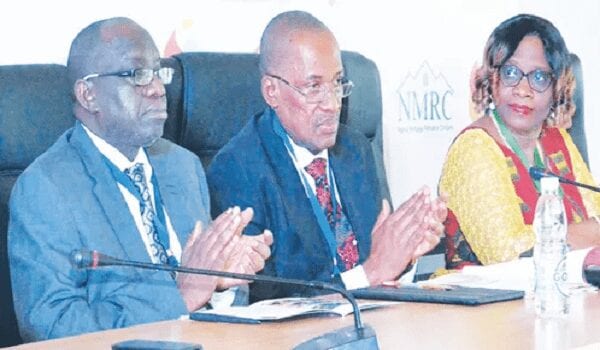Perturbed by paucity of fund rocking the licensed Primary Mortgage Banks (PMBs) in the country, the Federal Government has been urged to initiate a policy that will promote mergers in the sector. Former Publicity Secretary, Nigerian Institution of Estate Surveyors and Valuers (NIEVS), Mr. Meckson Okoro, made this in a chat with New Telegraph in Lagos.
He said the call for consolidation in the industry has become imperative due to liquidity challenge rocking the PMBs in the face of 17 million housing shortages in the country. Okoro, who is also the Managing Director of M.I. Okoro and Associates, expressed fear that Uchethe primary mortgage banks might not be able to provide the necessary mortgage finance for home/accommodation seekers if nothing is done to increase their financial base.
It would be recalled that a total of 32 primary mortgage banks (PMBs) out of 89 met the recapitalisation requirements of N5 billion for national primary mortgage banks and N2.5 billion for state (PMBs) as stipulated by the Central Bank of Nigeria (CBN) on December 31, 2014. Since their recapitalisation, the sector has been noted for low activities.
According to the United Nations (UN)’s statistics, Nigeria has a housing deficit of 17 million units. To redress the housing deficit, experts said that 720,000 units of houses are needed annually to reduce the shortages. In terms of mortgage financing, over N59 trillion on affordability bases would be required to redress the housing deficit.
Describing housing development as “capital-intensive venture,” Okoro said that it would be difficult for a single primary mortgage bank to assume position of funding housing initiative successfully . He said: “Mortgage banks don’t have the fund; they don’t have the financial muscle to support homeownership.
“Government should make a policy where two or three PMBs merge to create big pool of fund. Government can also fund them through Federal Mortgage Bank Nigeria (FMBN) to make sure they provide loans to people that need them.”
Apart from this, the real estate expert suggested that the FMBN should be strongly capitalised and restructured to assume same role the Central Bank of Nigeria (CBN) is playing over commercial banks in the PMBs. “FMBN should do what CBN is doing for commercial banks.
The PMBs can be supervised by FMBN to ensure that money gets to home seekers and developers,” he said. Hitherto, real estate experts have noted that mortgage subsector has continued to encounter challenges, which have hindered its capacity to act as catalyst for the development and provision of affordable housing among citizens.
Some of the challenges they mentioned included delay in accessing National Housing Fund (NHF); dearth of long term funds as most PMBs find it difficult to provide the required bank guarantee to access NHF; difficulties in deposit mobilisation due to lack of understanding of the nature of business of PMBs; Land Use Act’s bottlenecks, which has made the process of perfecting title to landed property burdensome, slow and costly; and underdeveloped Mortgage-Backed Securities (MBS) market.
Other challenges are high cost of building construction, weak corporate governance and risk management practices. Okoro, who runs an estate surveying and valuation company, stated that unless PMBs are allowed to merge in order to boost real estate’s funding, housing units would continue to increase in prices due to poor supply.































